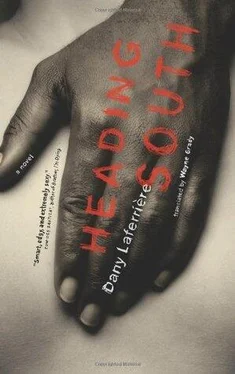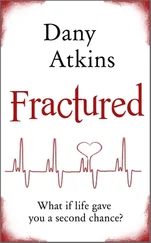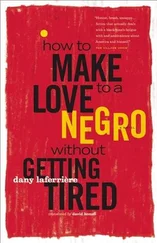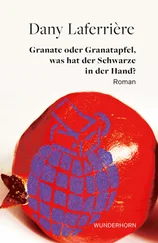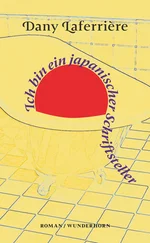When I get there the reception (at least the official party) is over, but a few people (a restrained group of the artist’s personal friends and admirers) are hanging around on the sidewalk, in front of the gallery.
Carl-Henri welcomes me with a conspiratorial smile, and introduces me to Jacques Gabriel. Tall, shaved head, insolent mouth, a man who intimidates from the word go. But the next second he favours me with a warm look that makes me reconsider my first impression.
“The vernissage is over,” he says, brusquely enough.
“I didn’t come to see the paintings. .”
Carl-Henri turns pale.
“No?” says Gabriel, taken aback.
“I suppose I’m a bit old-fashioned. .”
“Meaning what?” Gabriel tosses back, his tone hard.
“Well, meaning I like to meet the man before I get to know his work.”
Gabriel looks at me in astonishment, then smiles.
“Me too! I’m the same way. . If I don’t like the man, I’m not interested in his work no matter how brilliant it is. . It’s a pleasure to meet a young man who knows how to think for himself. .”
“Now you sound like a old asshole. .”
Carl-Henri turns a shade paler. I feel sorry for his poor heart.
“Jacques,” puts in one of the women, “it looks as though you’ve met your match. .”
“Shut your face!” Gabriel bays at her. “And stop thinking with your vagina. . You couldn’t care less whether he’s my match or not. . All you want to know is whether you can take him home with you tonight. .”
“Oh! Jacques!” she says in her pretty, pouting voice.
Everyone laughs (even the woman who’s been attacked). The iconoclastic painter Jacques Gabriel has just used the old, tried and true trick of insulting a member of the bourgeoisie in order to bring the rest of the crowd over to his side.
“He’s not always like this,” Carl-Henri whispers.
“We’re going to Croix-des-Bouquets, do you want to come?” Gabriel asks me, almost defiantly, or at any rate in a tone of voice different from the one he uses to address the others, even Carl-Henri.
“I’ll come.”
A generous burst of laughter from the painter.
“Good, let’s go! Everyone to the cars. Carl-Henri, you,” (he nods to me with an irresistible smile) “Fifi,” (the little prostitute) “M.R.” (a Parisian journalist who is doing a profile of Gabriel for her magazine) “. . you all come in my car. The rest of you can make your own way there,” he adds, laughing.
Jacques Gabriel drives without the slightest regard for the rules of the road. Fortunately, we get through Port-au-Prince without incident, unless you count the daggers drawn between the journalist (very pretty, but a total snob) and the painter! The second car falls farther and farther behind.
“What do you think about power?” she asks him point blank.
“I’m not interested in generalities,” Gabriel replies.
“I’m talking about the way you yourself use power.”
Brief silence.
“Would you care to be more specific, madame?”
“Sure,” she says, taking a deep breath. “Just a few minutes ago, with that young woman.”
“What did I do to her?”
The journalist looks somewhat astonished at the painter’s disingenuousness.
“You insulted her.”
“I simply told her the truth. . It’s what I thought she was thinking.”
“Ah, so you really believe women think about nothing but that?”
The car swerves sharply towards the side of the road.
“Never use generalities when you’re speaking to me. That’s the last time I’m going to tell you!”
The darkness is total. We’re driving through a complete blackout. Every now and then we pass a truck with a load of passengers. Jacques Gabriel’s game seems fairly simple: he heads straight for the truck as it comes towards us, forcing it to move over to make room for us to pass. At first I thought he didn’t know how to drive, or that he was drunk, but now I realize he knows full well what he’s doing. It’s a trick invented by truck drivers a long time ago, and Gabriel is simply giving them a taste of their own medicine. We’ve completely lost sight of the second car.
“What about you, how do you use power?” Gabriel says roughly.
“Who?” says the journalist, surprised.
“You.”
“I don’t know what you’re talking about,” she says tautly.
“I was watching you earlier at the gallery.”
“But I didn’t do anything! What did you see?”
“Exactly!” Gabriel shouts, and gives a brief burst of a laugh. “You did nothing!”
“So?” asks the journalist, still tense.
“You know very well, my dear, that you don’t need to do anything. That servile bunch of bourgeois in Pétionville are ready to throw themselves at your feet. . Those know-nothings would sell their first-born to be talked about in Paris. To them, talking to a special emissary from a big magazine is like talking to Paris itself. . But I can assure you, madame, that the rest of the country is quite different. . We’re neither French living in America nor Africans living in exile. We’re Haitians, know what I’m saying?. . No, there’s no way you could understand. Maybe you’ll catch on eventually. .”
Just as the journalist leans forward with fire in her eyes to say something in reply to Gabriel’s accusation of colonialism (the worst thing a Parisian leftist journalist can be accused of), the car runs over something with a dull thud.
“Oh! Vierge Marie!” cries the little prostitute.
“It must have been a wild goat or something crossing the road,” says Carl-Henri.
Jacques Gabriel pulls the car over. When he gets out, he finds that he has indeed hit a wild goat. There is the odour of hot blood. But rather than get back in the car, Gabriel walks off into the canefield with the dead animal in his arms.
“What’s he doing?” gasps the journalist.
“Lal fé poul sa’l gin poul fé,” says the little prostitute.
The journalist looks at Carl-Henri.
“What did she say?”
“She said that Jacques Gabriel is doing what he has to do.”
The journalist makes a scornful face.
“You don’t believe in invisible forces?” I ask her.
“Sorry,” she says with a smile. “I’m not the least bit superstitious.”
“It’s not necessarily superstition,” says Carl-Henri.
“As far as I’m concerned,” she says, “this car has run over a wild goat.”
“Cé sa ou pensé,” says the little prostitute, who understands a bit of French but doesn’t speak it.
The journalist jumps as though her body has received an electric shock. Without knowng exactly what the prosititute has been saying in Creole, she is convinced that the woman has been speaking to her and that her words are filled with venom. She suspects that Carl-Henri has been discreet in his translations. On the surface of it, the little prostitute hasn’t said anything particularly vindictive. She simply said: “That’s what you think.” Nonetheless, the journalist has good reason to be suspicious: it’s a safe bet that if they were in a dark alley somewhere in Port-au-Prince the little prostitute wouldn’t hesitate for a second to slit her throat. Why? Because, daughter of the Gonaïves that she is, she has always known who her enemies are. To test this theory, M.R. (the woman, not the journalist) turns to the little prostitute, who is sitting behind her, but cannot bring herself to stare into the flame of pure hatred that burns in her eyes.
And then Jacques Gabriel comes out of the canefield with the goat across his shoulders. With a shrug he drops the animal into the trunk at the back of the car.
“What a strange man,” the journalist says. “A moment ago he was carrying the goat in his arms as though the car had run over a child, not an animal, and now here he is just dumping it into the trunk.”
Читать дальше
